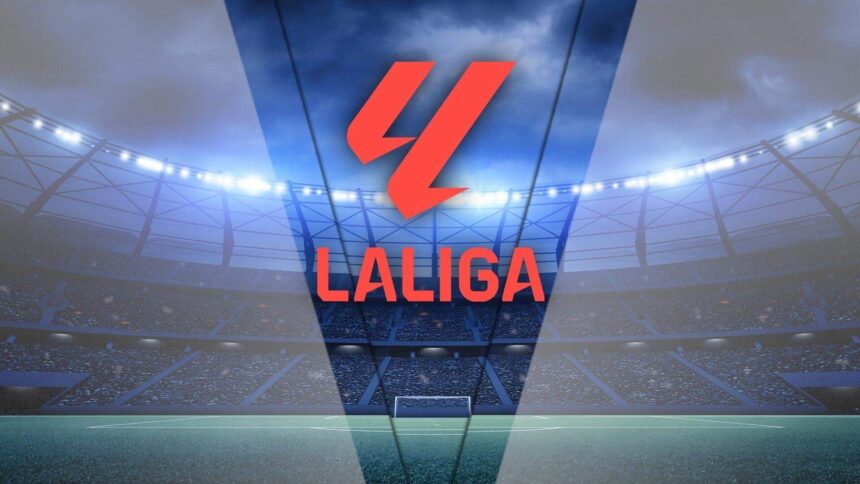The landscape of Spanish football has changed significantly over the past two decades, with foreign investors playing a major role in shaping the future of LaLiga clubs. While the Premier League has long been associated with international ownership, LaLiga has increasingly welcomed foreign investments, bringing both financial opportunities and challenges.
From Middle Eastern billionaires to American consortiums and Asian business tycoons, international investors are reshaping the competition and ambitions of Spanish clubs. But what does this mean for the future of LaLiga? In this article, we explore the benefits, controversies, and long-term impact of foreign investments on Spain’s top-tier football league.
💰 The Rise of Foreign Investments in LaLiga
While Real Madrid and Barcelona have historically dominated LaLiga with their unique member-owned structures, many other clubs have sought external financial support to compete at the highest level.
Key Milestones in Foreign Investments in LaLiga:
📌 2016 – Atlético Madrid’s Chinese Investment: Wanda Group acquired a 20% stake, bringing commercial growth in Asia.
📌 2018 – Valencia’s Singaporean Takeover: Peter Lim’s ownership led to financial backing but also management controversies.
📌 2020 – City Football Group (CFG) Buys Girona: The owners of Manchester City expanded their football empire in Spain.
📌 2022 – Sevilla Attracts American Investors: 777 Partners invested in Sevilla, helping them remain competitive.
📌 2024 – Saudi Interest in LaLiga: Reports emerged of Middle Eastern investors targeting Spanish clubs for long-term growth.
With financial fair play (FFP) regulations tightening, foreign investors see LaLiga as a strategic opportunity to develop clubs, increase brand value, and leverage Spain’s global football market.
🏆 Positive Impacts of Foreign Investments
Foreign ownership has provided several advantages to LaLiga clubs, particularly those seeking to break the duopoly of Real Madrid and Barcelona.
1. Financial Stability & Debt Reduction
Many clubs have struggled with financial instability, especially after the COVID-19 pandemic. Foreign investors have helped stabilize clubs by:
✅ Reducing club debts and increasing liquidity.
✅ Improving cash flow for stadium renovations and player acquisitions.
✅ Providing long-term investment strategies rather than short-term survival plans.
For example, Atlético Madrid used foreign investments to finance the Wanda Metropolitano stadium, ensuring long-term financial security.
2. Increased Competitiveness
Teams like Girona and Sevilla have gained access to better financial resources, allowing them to:
🔹 Compete in European tournaments by strengthening their squads.
🔹 Attract top managerial talent and coaching staff.
🔹 Develop youth academies and scouting networks for future stars.
With new owners willing to invest in transfers and wages, more clubs are now challenging the traditional dominance of Madrid and Barça.
3. Global Branding & Commercial Growth
Foreign investors have also helped LaLiga clubs expand their presence in international markets. This includes:
🌍 Asian and American market expansion through club partnerships.
🎥 Increased investment in LaLiga’s broadcasting rights worldwide.
👕 More commercial deals with international sponsors.
For example, Valencia under Peter Lim saw a significant increase in commercial partnerships across Asia, particularly in Singapore and China.
⚠️ Challenges and Controversies
Despite the financial benefits, foreign investments in LaLiga have also sparked concerns and controversies.
1. Loss of Club Identity & Fan Backlash
Many traditional supporters worry that foreign ownership prioritizes profits over football culture.
🚨 Valencia fans protested against Peter Lim, claiming poor management decisions harmed the club’s sporting ambitions.
🚨 Malaga CF’s Qatari ownership led to financial mismanagement, resulting in relegation and instability.
2. Unstable Short-Term Investments
Unlike English clubs, some LaLiga teams have seen investors come and go quickly, leading to:
❌ Poor long-term planning and frequent managerial changes.
❌ Unclear sporting strategies, as seen with Espanyol’s inconsistent ownership models.
❌ Financial mismanagement, with some clubs failing to sustain high spending models.
3. Potential Super League Conflicts
With Real Madrid and Barcelona still pushing for a European Super League, foreign investors in other LaLiga clubs face uncertainty about the future of the league’s financial structure.
Some investors may hesitate to pour money into clubs that could see drastic competition format changes in the coming years.
📊 Comparing LaLiga’s Foreign Investments to Other Leagues
While LaLiga has increased its foreign ownership, it still lags behind other European leagues in terms of international influence.
| League | % of Foreign-Owned Clubs | Major Foreign Investors |
|---|---|---|
| Premier League | 85% | American, Saudi, Emirati, Chinese |
| Ligue 1 | 65% | Qatari, American, Russian |
| Serie A | 50% | American, Chinese, Middle Eastern |
| LaLiga | 40% | American, Chinese, Middle Eastern |
| Bundesliga | 10% | Mostly local ownership (50+1 rule) |
While Premier League clubs dominate foreign ownership, LaLiga is gradually catching up, with clubs attracting wealthy investors looking for long-term projects.
🚀 The Future of Foreign Investments in LaLiga
As of February 3, 2025, several new foreign investment rumors are circulating. Some of the key questions for the future include:
🔹 Will Middle Eastern investors take over more LaLiga clubs?
🔹 Can foreign owners challenge Real Madrid & Barcelona’s dominance?
🔹 How will LaLiga’s financial rules impact foreign spending power?
With UEFA’s Financial Sustainability Regulations (FSR) set to replace Financial Fair Play (FFP) in 2025, foreign investors will need to balance financial growth with responsible spending.
Clubs like Real Sociedad, Villarreal, and Athletic Bilbao continue to maintain local ownership models, showing that LaLiga remains a mix of traditional Spanish football culture and modern global business.
⚽ Support Your Favorite Team with HIJAU44!
LaLiga continues to be one of the most exciting leagues in the world, thanks to a mix of local passion and international investment. Whether you’re supporting a club with foreign backing or one staying true to its roots, the future of Spanish football promises high-stakes drama and unforgettable moments.
📢 Join the football community and show your support for your favorite LaLiga team by visiting HIJAU44 today!



